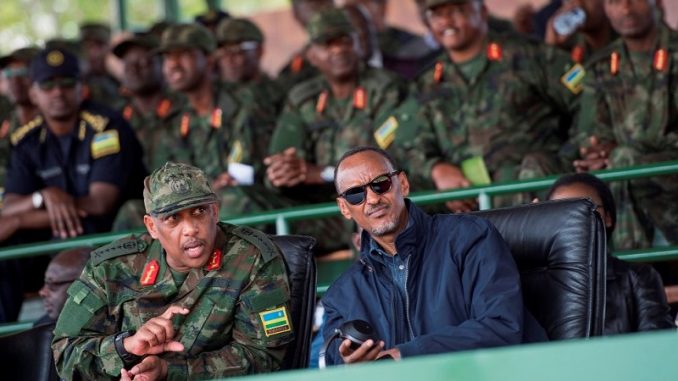On February 27, 2024, in Kigali, Rwanda, a notable decision emerged from the cabinet meeting chaired by President Paul Kagame. General Patrick Nyamvumba, former Chief of Defence Staff of the Rwandan Defence Force, was nominated by the Rwandan government to serve as the ambassador to Tanzania. This nomination is poised to replace Fatou Harerimana, who had held the ambassadorial position for just a year.
General Nyamvumba’s new potential role marks a significant transition in his career, following a period of relative inactivity since his removal as the Minister of Security in April 2020. His tenure as Minister of Security, a position he held for six months after being transitioned from his role as Chief of Defence Staff—a position he held for six years—ended abruptly. The Ministry of Security, dissolved in 2016 and reinstated in 2019 with Nyamvumba at its helm, represented an important phase in his career.
The nomination of General Nyamvumba follows a trend of high-ranking military officers being appointed to ambassadorial positions, including Major General Charles Karamba to Ethiopia, Lieutenant General Mushyo Kamanzi to Russia, and Lieutenant General Charles Kayonga to Turkey. This pattern raises questions about the strategic motivations behind such appointments, particularly in the case of Tanzania, a country with which Rwanda has significant economic and political ties.
General Nyamvumba is set to succeed Fatou Harerimana, who represented Rwanda in Tanzania since early the previous year and submitted her credentials to President Samia Suluhu in September. The quick succession of ambassadors, especially after just one year, is unusual in diplomatic norms and has sparked curiosity about the underlying reasons for this rapid change.
The decision to appoint another high-ranking military officer as ambassador to Tanzania may be viewed through multiple lenses. One perspective suggests President Kagame’s intention to place a figure with substantial political, intelligence, and military influence in Tanzania—a country crucial to Rwanda’s interests in various sectors, including trade and regional politics. General Nyamvumba’s extensive military and leadership experience might offer advantages that surpass the capabilities of his predecessor, Fatou Harerimana, a politician who rose through the ranks of the Parti Démocrate Idéal (PDI).
Another angle considers the possibility of re-engaging a high-ranking military officer in active duty, thereby addressing the issue of a skilled leader remaining idle, which could present challenges to governance stability.
Tanzania holds a pivotal role in Rwanda’s strategic interests, notably in economic and regional political matters. The Tanzania Ports Authority reports that over 70% of goods entering Rwanda come through the Dar es Salaam port, underlining the critical nature of this bilateral relationship. Furthermore, the two countries are collaborating on a hydroelectric project on the Rusumo River, along with Burundi, highlighting the multifaceted nature of their partnership.
The diplomatic dynamics between Rwanda and Tanzania also extend to the broader regional context, particularly concerning the conflict in Eastern DR Congo. Tanzania’s deployment of troops to the SADC mission against the M23 rebel group, amid Rwandan support for the M23, underscores the complex interplay of regional security and diplomacy.
While the official reasons for the rapid changes in Rwanda’s ambassadorial representation in Dar es Salaam remain undisclosed, the appointment of General Nyamvumba signals a strategic recalibration of Rwanda’s diplomatic engagement with Tanzania. This move comes against the backdrop of evolving regional dynamics and Rwanda’s broader strategic interests in East Africa.
General Patrick Nyamvumba’s career has been marked by significant achievements and controversies, including his tenure as Chief of the Rwandan Defence Force and his involvement in peacekeeping operations in Sudan. However, allegations of war crimes during the Rwandan Civil War, specifically relating to operations against Hutu civilians, cast a shadow over his military legacy. These aspects of Nyamvumba’s career reflect the complex and often contentious nature of Rwanda’s recent history and its impact on present-day diplomatic and military strategies.





























































